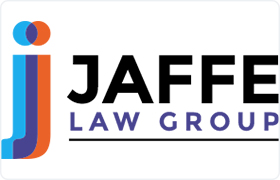Detroit Juvenile Law Lawyer, Michigan
Sponsored Law Firm
-
 x
x

Click For More Info:
-
Jaffe Law Group
30701 Barrington Street Madison Heights, MI 48071» view mapCriminal Law Advocates for Oakland County
For over three decades, Jaffe Law Group has helped individuals accused of crime, families dealing with tough legal matters, and injury victims get through a difficult time.
248-522-9545
Richard M. Halprin
✓ VERIFIEDCriminal, Family Law, Juvenile Law, Litigation
As an experienced attorney and district court magistrate, Richard Halprin has cultivated a network of relationships within the legal community, includ... (more)
Kenneth A. Thompson
✓ VERIFIEDCriminal, Traffic, Juvenile Law, Personal Injury, Estate
Kenneth A. Thompson was born in Michigan in 1980. He grew up in Westland, Michigan with his mother and sister after losing his father to a heart attac... (more)
Stephanie Elena Farkas
Federal Appellate Practice, Juvenile Law, Criminal, Collection
Status: In Good Standing Licensed: 14 Years
Marlene W. Coir
Juvenile Law, Divorce & Family Law, Criminal, Children's Rights
Status: In Good Standing
Adrienne Nicole Young
Juvenile Law, Federal Appellate Practice, Criminal, Collection
Status: In Good Standing Licensed: 11 Years
Kahlilia Yvette Davis
Juvenile Law, Estate Planning, Estate, Criminal
Status: In Good Standing Licensed: 17 Years
Danielle R. W. Nuccio
Juvenile Law, Litigation, Family Law, Criminal
Status: In Good Standing Licensed: 9 Years
Mary Carolyn Barnes
Juvenile Law, Labor Law, Family Law, Elder Law
Status: In Good Standing Licensed: 17 Years
Mitchell Ribitwer
Traffic, Juvenile Law, DUI-DWI, Criminal
Status: In Good Standing Licensed: 49 Years
Lowell S. Friedman
Juvenile Law, Traffic, Medical Products & Devices, Divorce
Status: In Good Standing
 Brent Jaffe Madison Heights, MI
Brent Jaffe Madison Heights, MI AboutJaffe Law Group
AboutJaffe Law Group Practice AreasExpertise
Practice AreasExpertise


